
Demobilized soldiers are a special labor force: well-disciplined, physically fit, having undergone rigorous training, and highly organized. However, upon returning to their hometowns, many have difficulty identifying suitable occupations or finding stable employment opportunities. Recognizing this, in recent years, the Provincial Military Command has proactively developed a plan to support demobilized soldiers in integrating into civilian life, focusing on vocational training and job placement.
According to statistics from the Provincial Military Command, each year the locality receives more than 5,000 soldiers who have completed their military service. While still in the army, soldiers have had access to career orientation information through propaganda and direct counseling sessions at their units. After being discharged from the army, many people are introduced to participate in free vocational training classes or are supported to study at vocational colleges and secondary schools in the province. Of which, every year, nearly 4,000 demobilized soldiers are consulted, supported with vocational training and coordinated to go abroad for labor export by vocational schools, companies and enterprises.

To ensure vocational training for the right subjects, the Provincial Military Command coordinated with vocational training institutions to organize surveys on vocational training needs of demobilized soldiers. On that basis, vocational training institutions organized short-term vocational training classes, focusing on easy-to-find-job fields such as welding, civil electricity, auto repair, driving class B, C... In the period of 2020-2025, the whole province had more than 4,000 demobilized soldiers receiving vocational training with certificates, of which more than 80% had jobs after training or were introduced to work in Hoa Xa, My Trung, Bao Minh, Dong Van, Tam Diep, Khanh Phu, Gian Khau, Phuc Son Industrial Parks, ... or went to work abroad in Japan, Korea, Taiwan (China) ...

One of the factors contributing to the clear effectiveness of vocational training for demobilized soldiers in the province is the close coordination between relevant parties. Units under the Provincial Military Command have played a good role as a bridge between the army and vocational training institutions. Vocational schools develop training programs suitable to the characteristics of learners, and at the same time, cooperate with businesses to recruit students immediately after graduation.
Lilama 1 Vocational College (Ninh Binh) always gives priority to demobilized soldiers. The courses at the school are designed to be concise, from 3 to 6 months, combining soft skills training and job application skills. Some classes have achieved a post-training employment rate of up to 95%. In addition, the model of "Enterprises accompanying demobilized soldiers" has also brought about clear results. Enterprises in Dong Van and Chau Son Industrial Parks... not only commit to recruiting but also directly participate in the training process. Some places also grant scholarships to excellent students, organize annual job fairs to interview and recruit right in the classroom.
Promoting international cooperation in labor export is a prominent direction. Demobilized soldiers with good discipline and language skills are given priority to study Japanese and Korean to go to work as high-tech workers. This is both a career opportunity and a channel to create high income and accumulate for the future. In particular, Vocational College No. 20 (Military Region 3) is a trusted address for vocational training for demobilized soldiers. With a tradition of more than 45 years of construction and development, the school has a modern infrastructure system, a rich training program, and a team of lecturers who are experienced engineers and experts. Every year, Vocational College No. 20 receives thousands of students, of which the proportion of demobilized soldiers accounts for about 40-50%. The school's key training occupations include: mechanical engineering, automotive technology, electricity - electronics, welding, industrial sewing, construction engineering, information technology and short-term vocational elementary classes. In particular, the school also has labor export linkage programs, helping students after completing the course to go to Japan, Korea, Taiwan (China) to work with high income.
Lieutenant Colonel, Dr. Tran Quang Dung, Principal of Vocational College No. 20 (Military Region 3) said: “The school always considers demobilized soldiers as the core student force. With discipline, sense of responsibility and will to strive, students quickly acquire knowledge and practice skills. The school commits that 100% of demobilized soldiers will be introduced to jobs after graduation; of which about 80% will work in domestic industrial zones, 20% will go to work abroad.”

Despite many positive results, vocational training for demobilized soldiers still has difficulties and limitations that need timely remedial measures.
To further improve the effectiveness of vocational training associated with job creation for demobilized soldiers, in the coming time, units and localities need to strengthen propaganda, early consultation, and organize field trips for demobilized soldiers to visit businesses and production facilities. Update the list of training occupations to meet market needs, prioritizing high-tech occupations, digital technology, and labor export. Support loans, job connections, and legal aid for soldiers starting businesses or working abroad. Build a database that connects the provincial Military Command, the Department of Education and Training, and job placement centers.
Vocational training associated with job creation for demobilized soldiers is not only a social security policy, but also an important solution to promote quality human resources, contributing to social stability and local economic development. With a systematic and creative approach, we believe that each demobilized soldier will soon choose a suitable career and have a stable job.
Source: https://baoninhbinh.org.vn/dao-tao-nghe-gan-voi-viec-lam-cho-bo-doi-xuat-ngu-o-ninh-binh-250906173425902.html













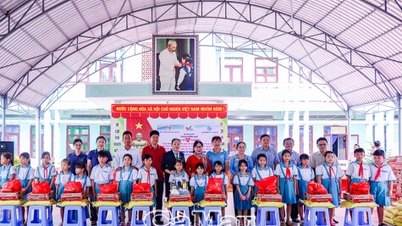

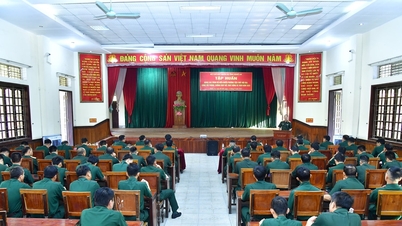









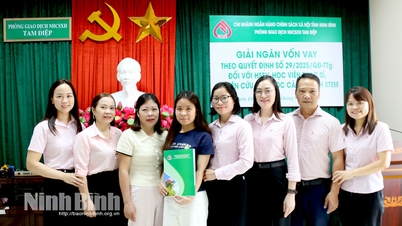
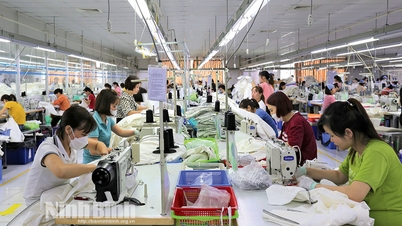

![[Photo] Impressive display booths of provinces and cities at the Exhibition 80 years of the Journey of Independence - Freedom - Happiness](https://vphoto.vietnam.vn/thumb/1200x675/vietnam/resource/IMAGE/2025/9/7/cd63e24d8ef7414dbf2194ab1af337ed)









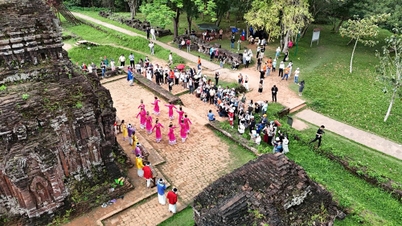





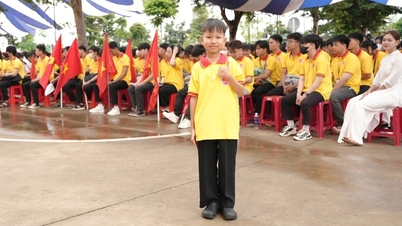









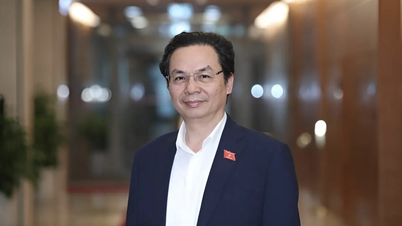



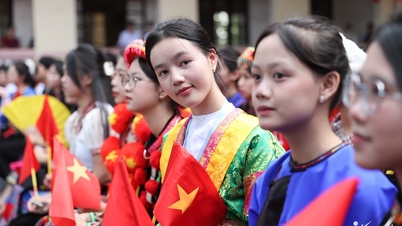





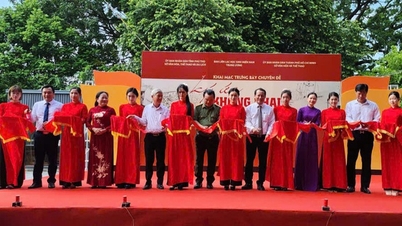
























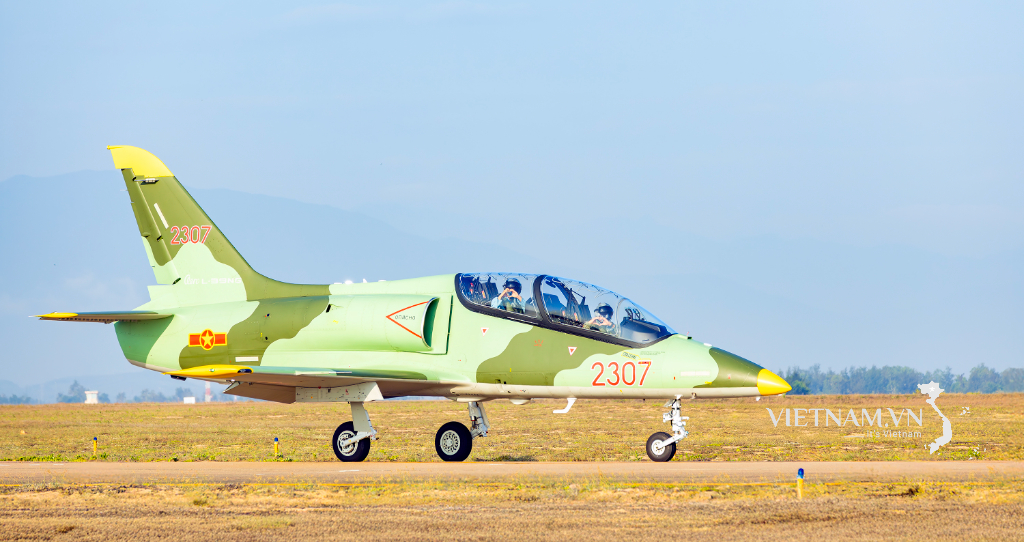
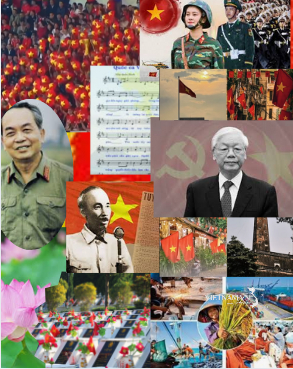

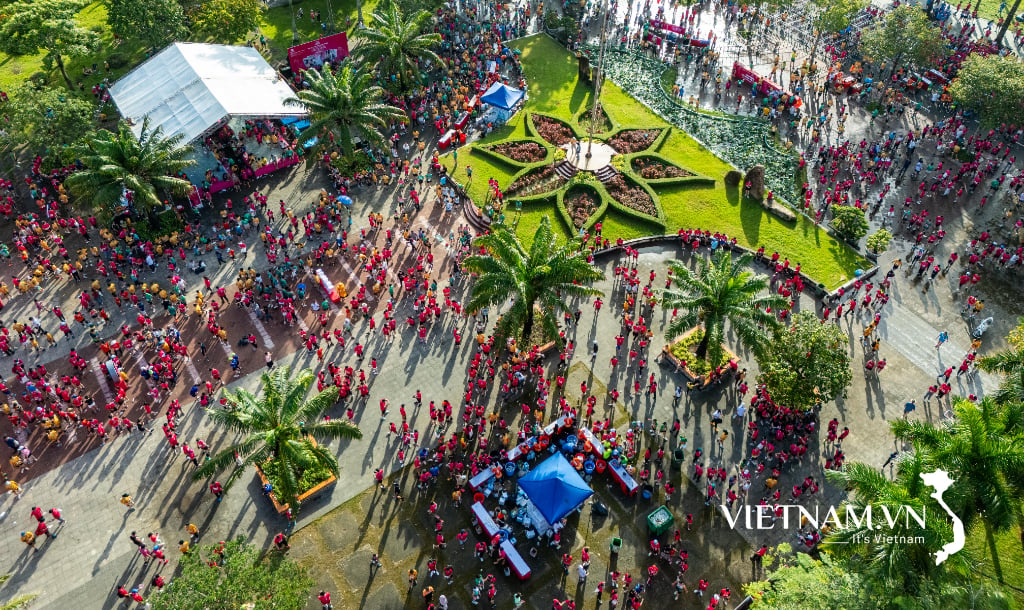
Comment (0)